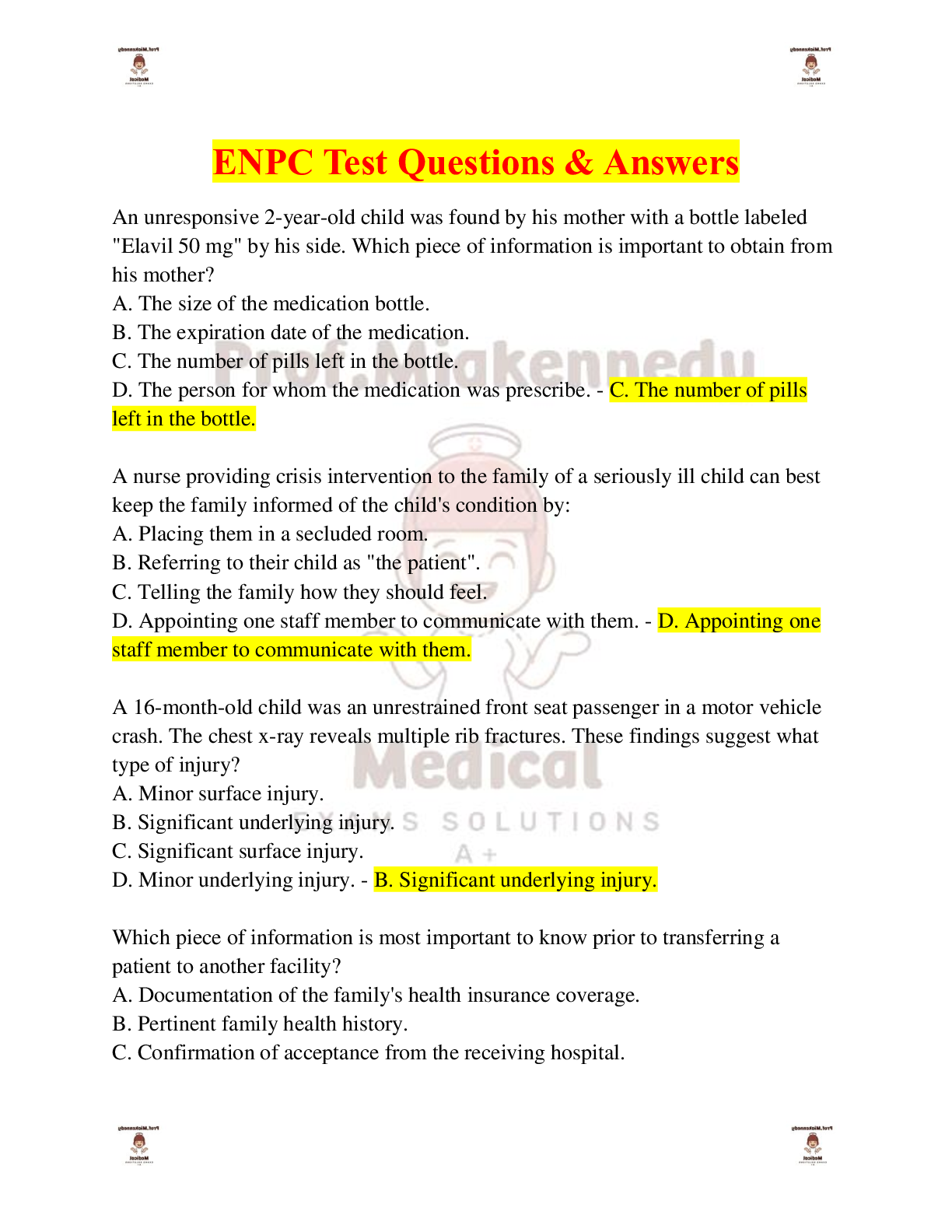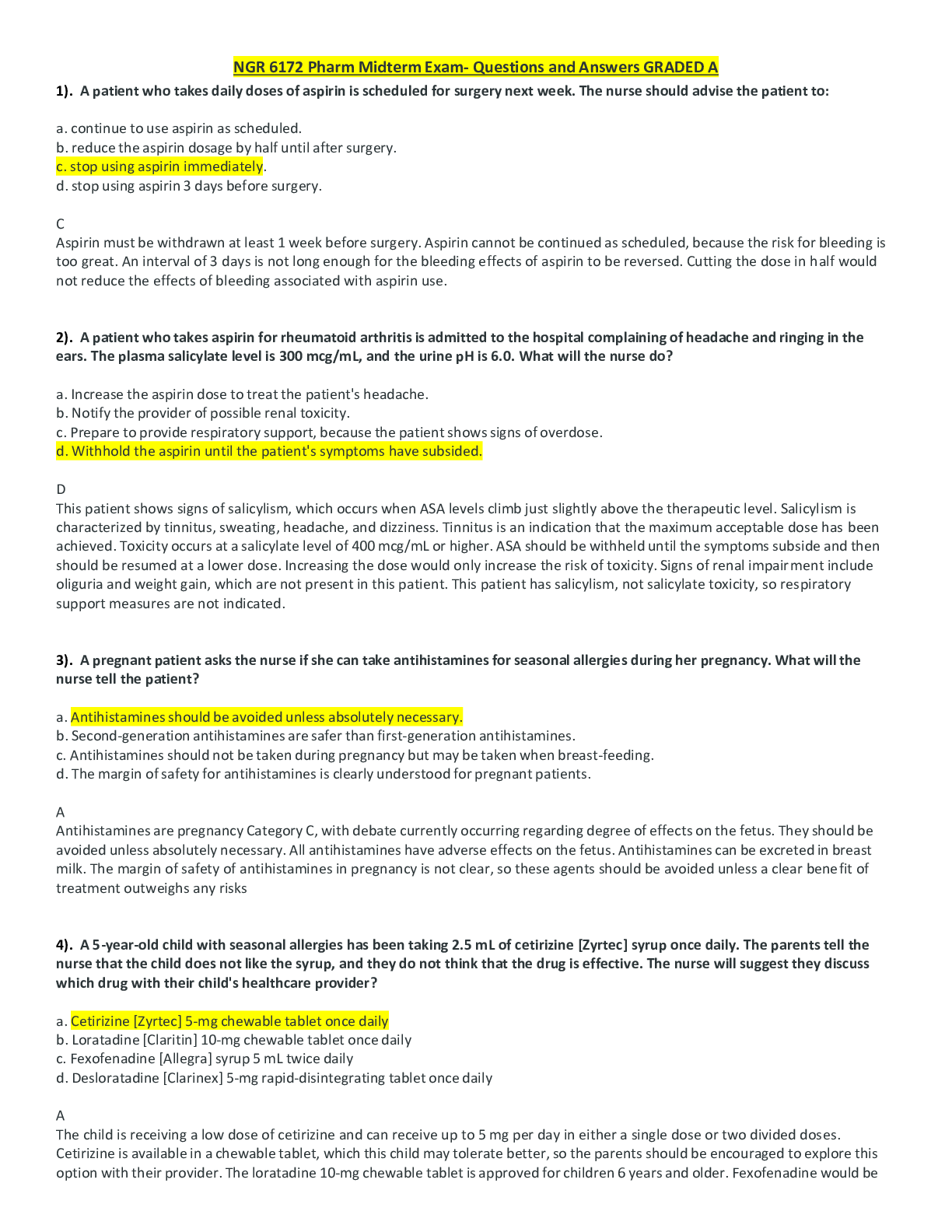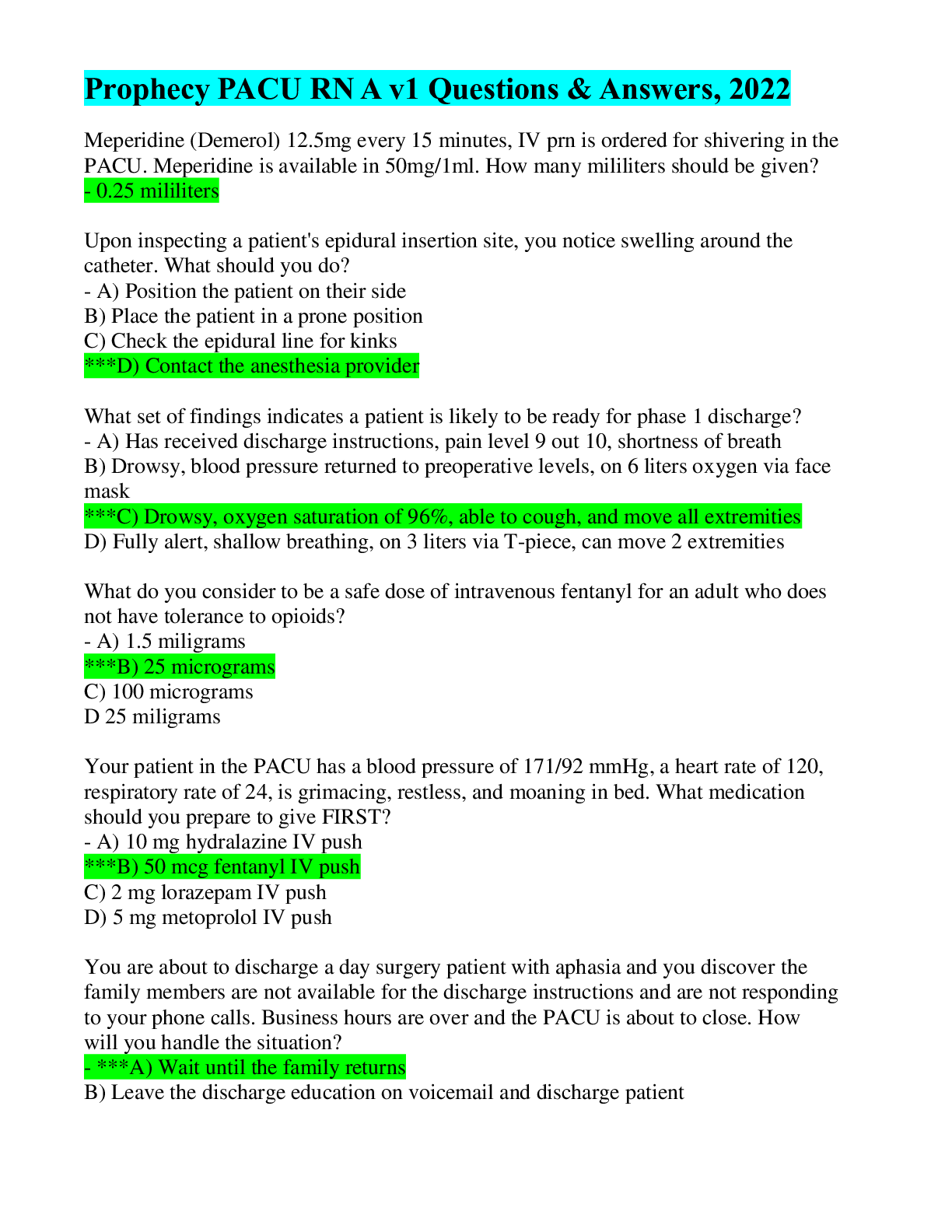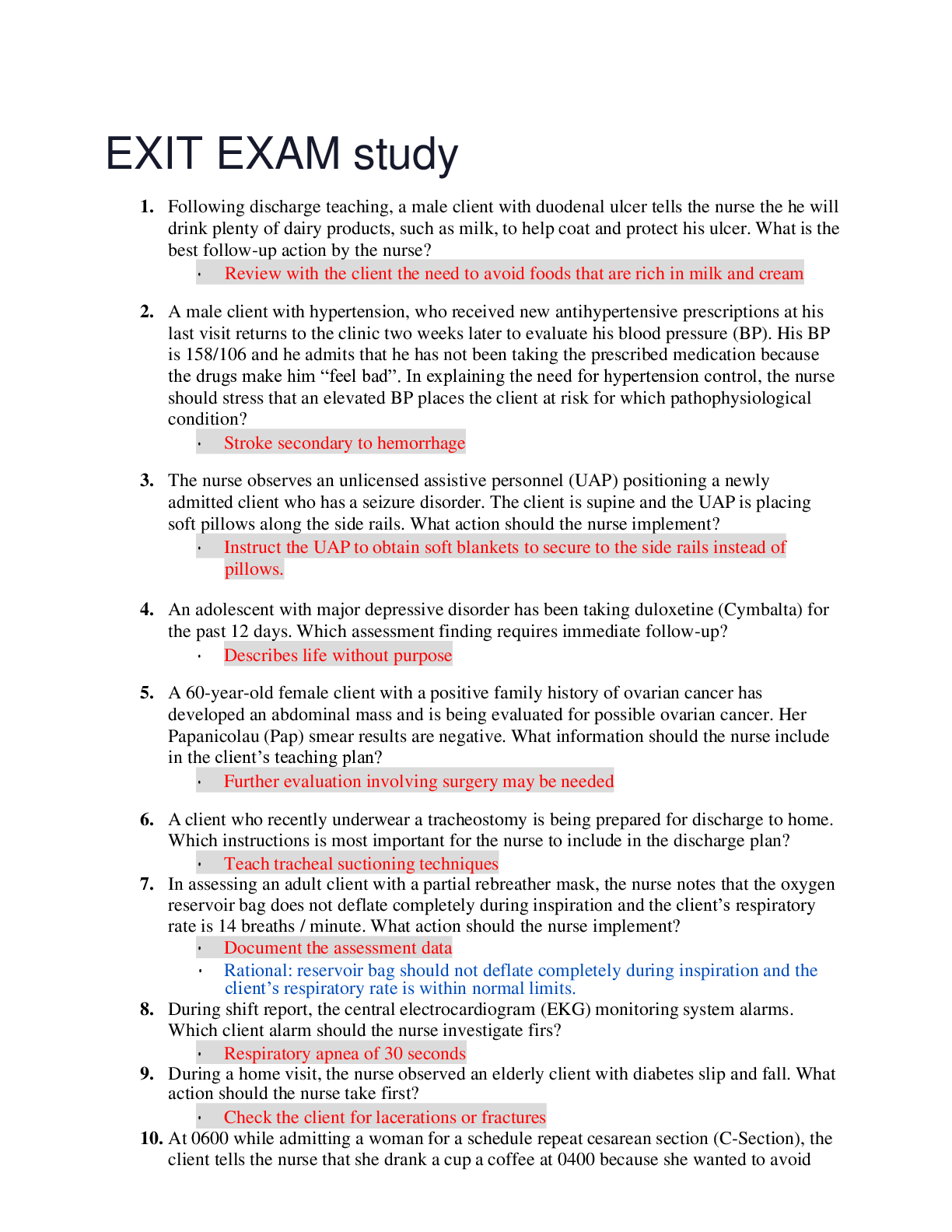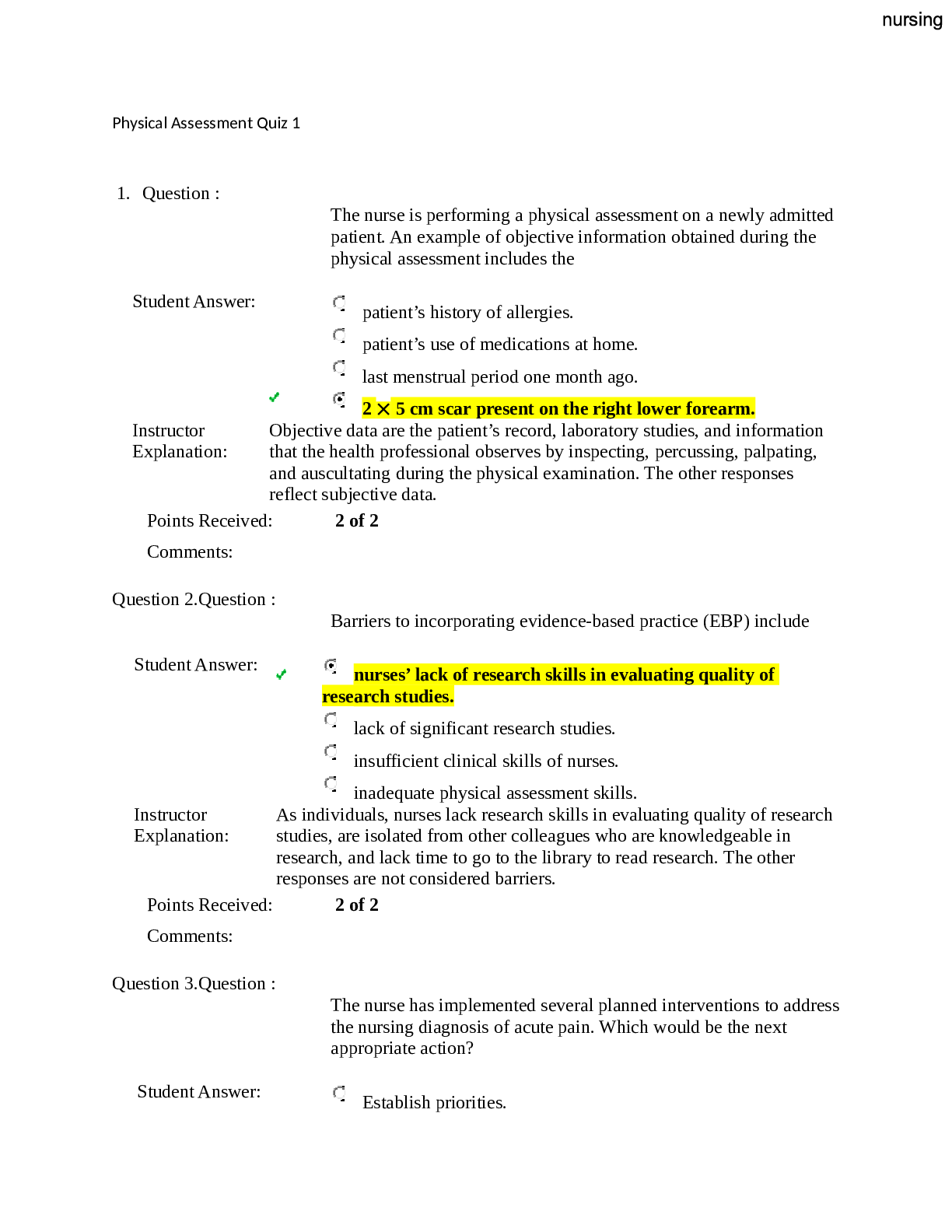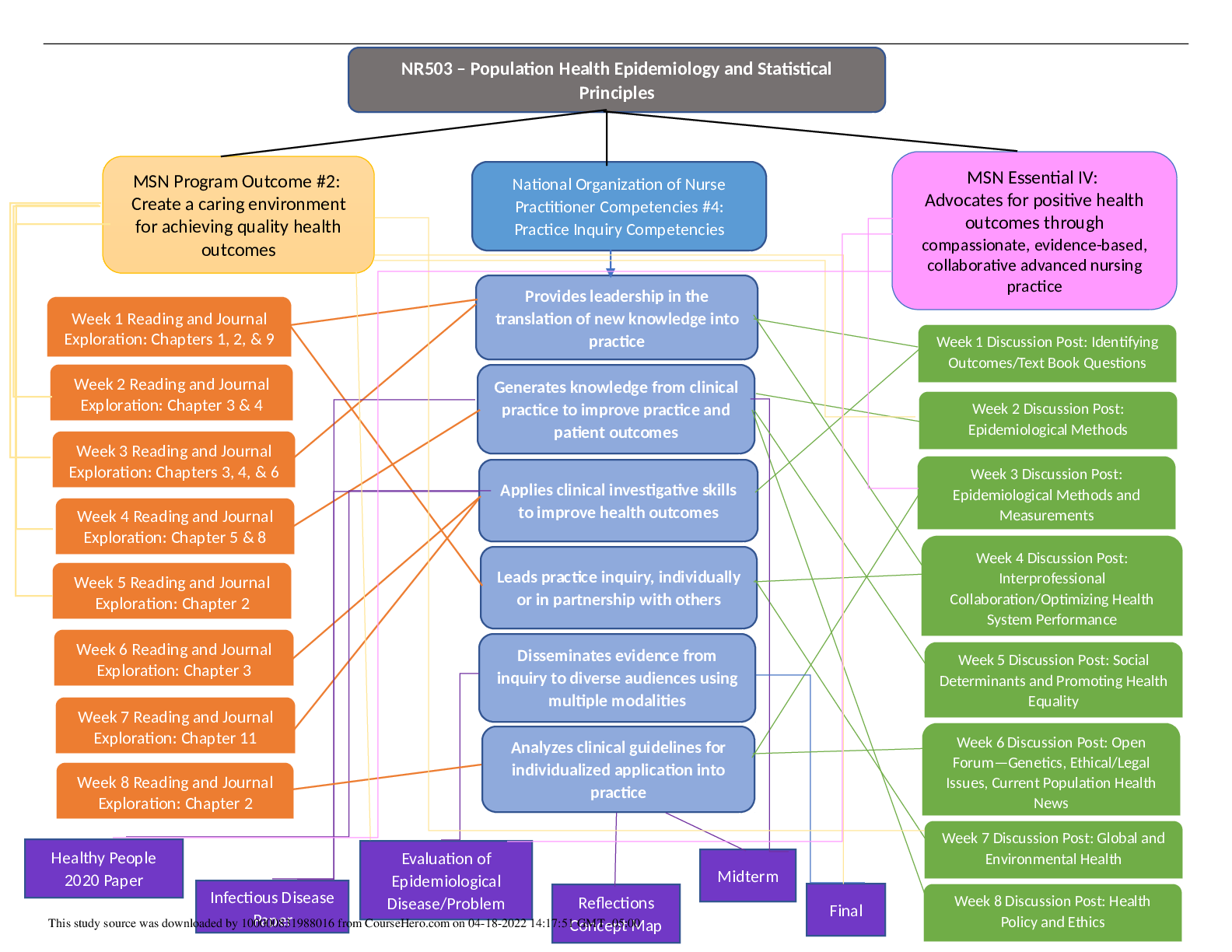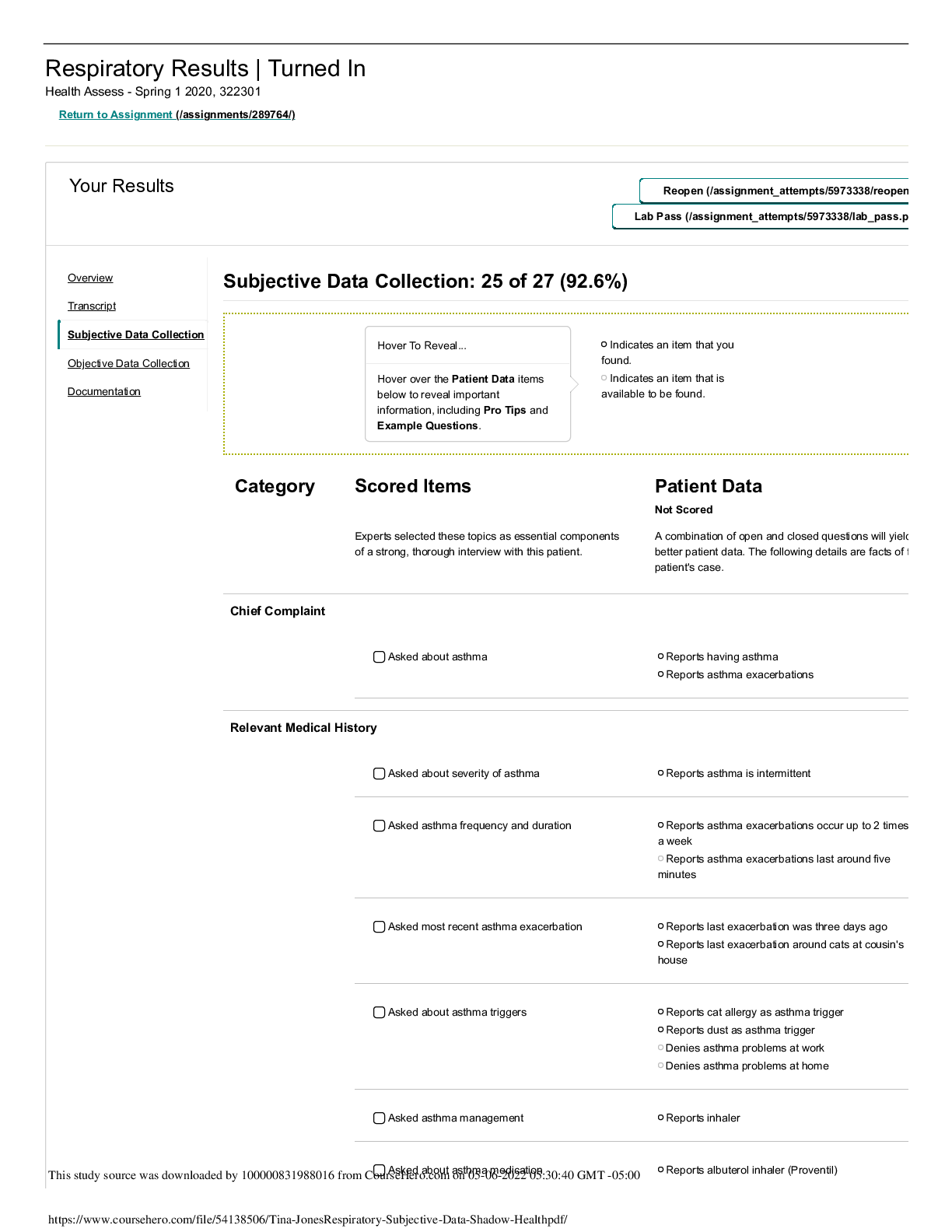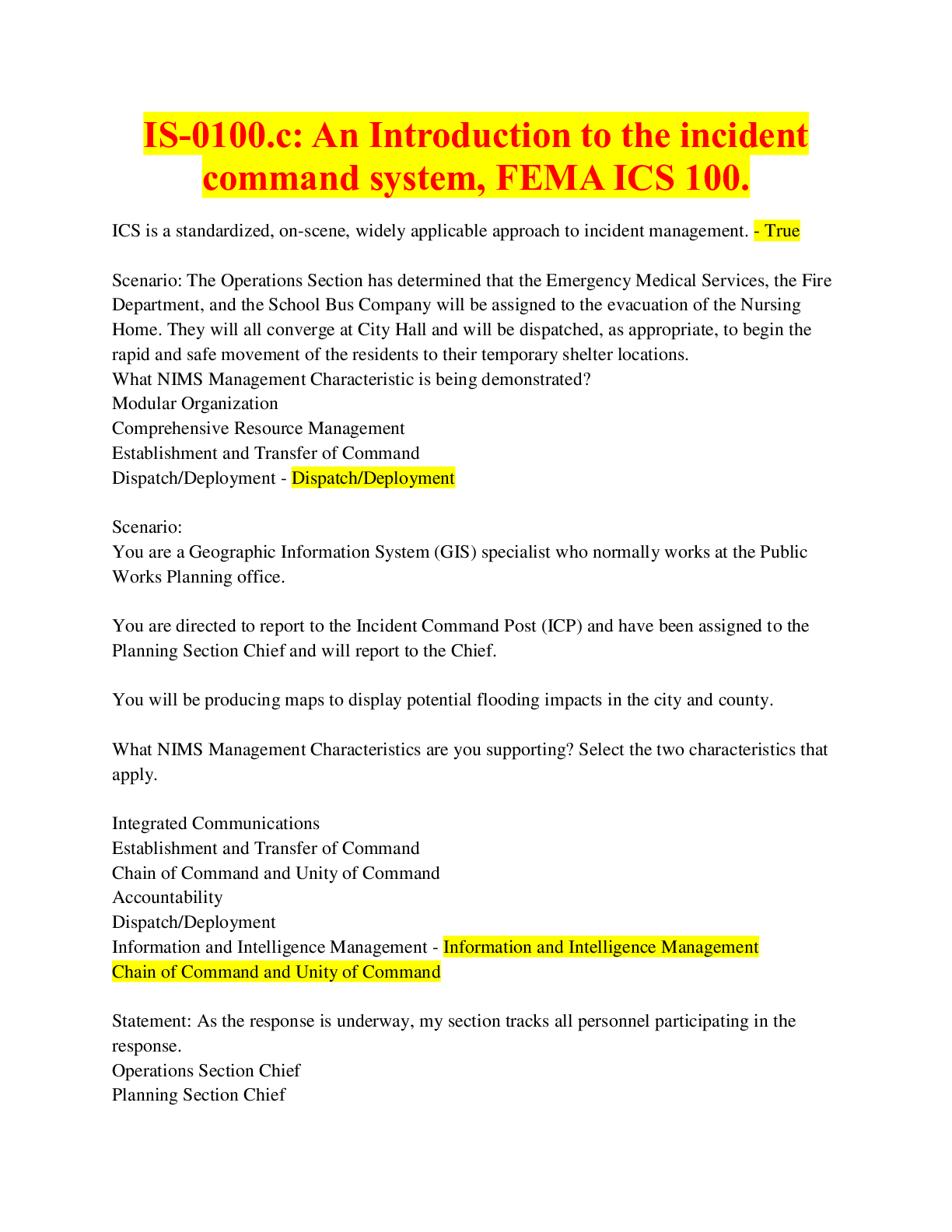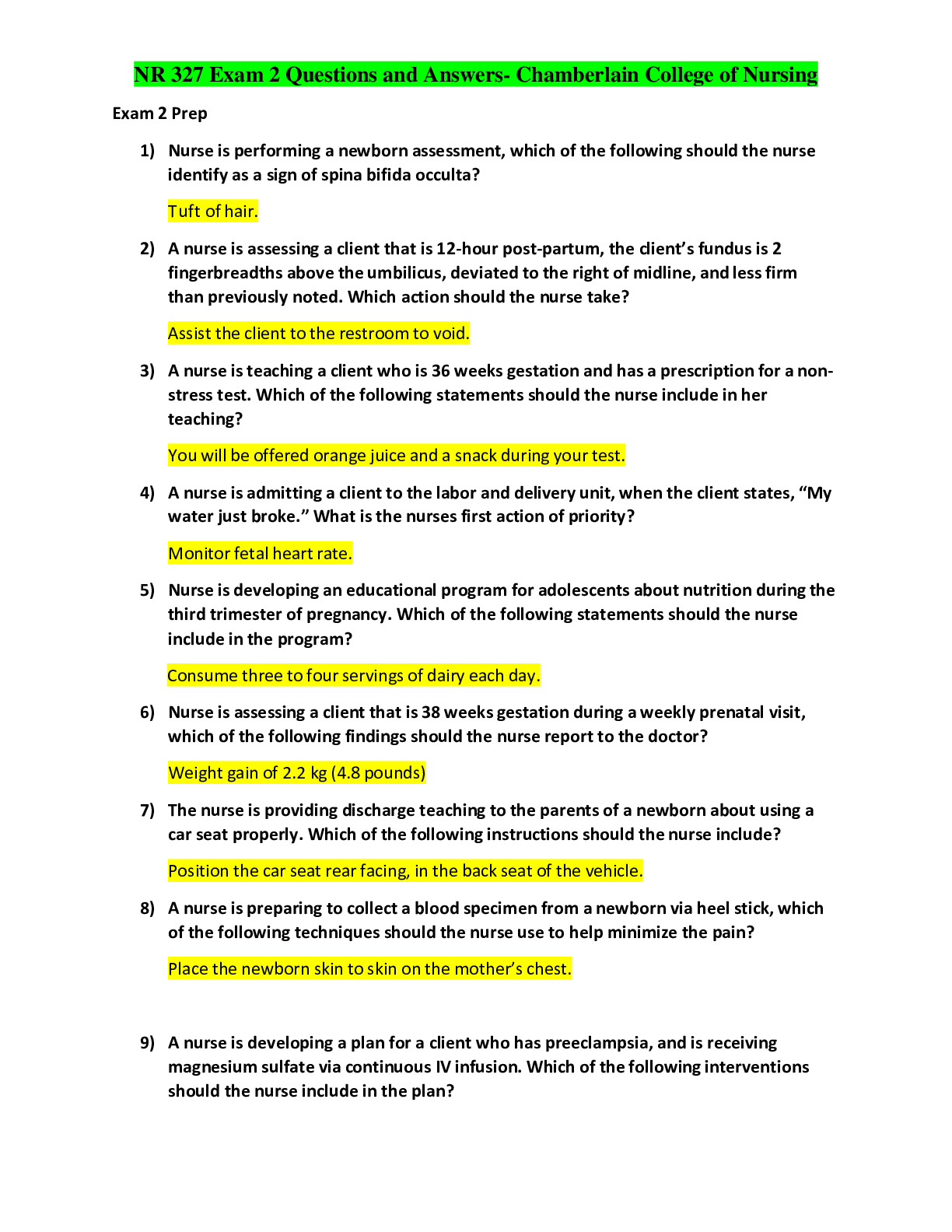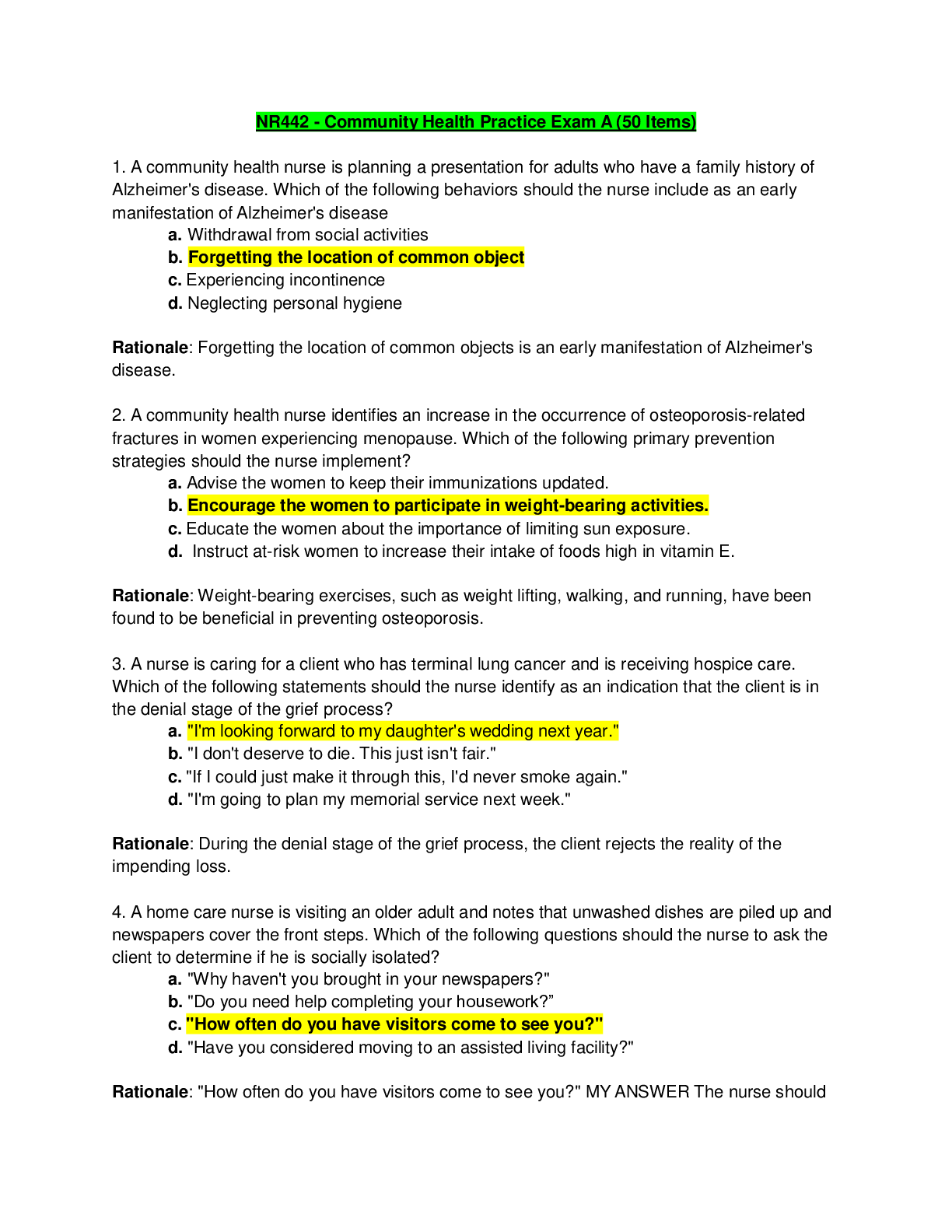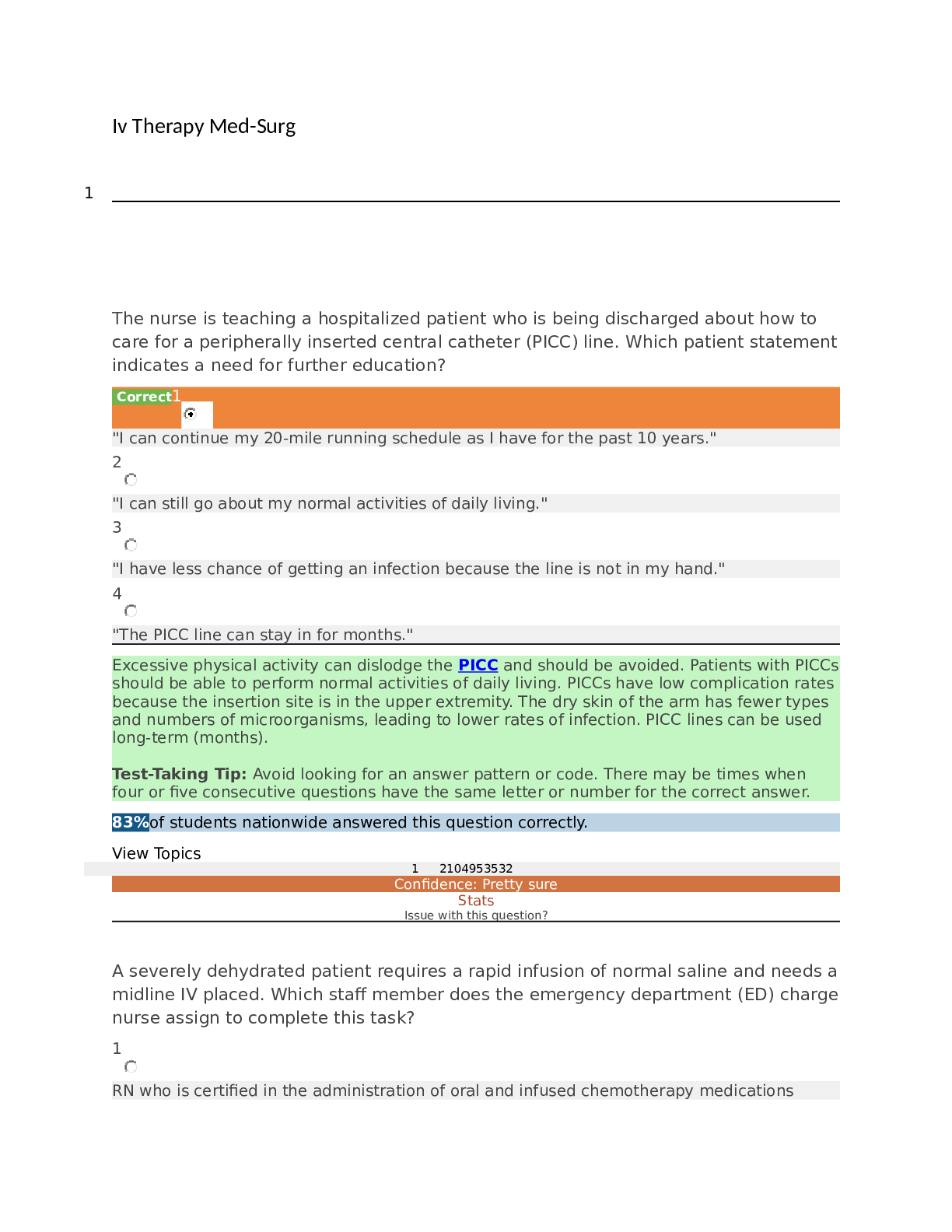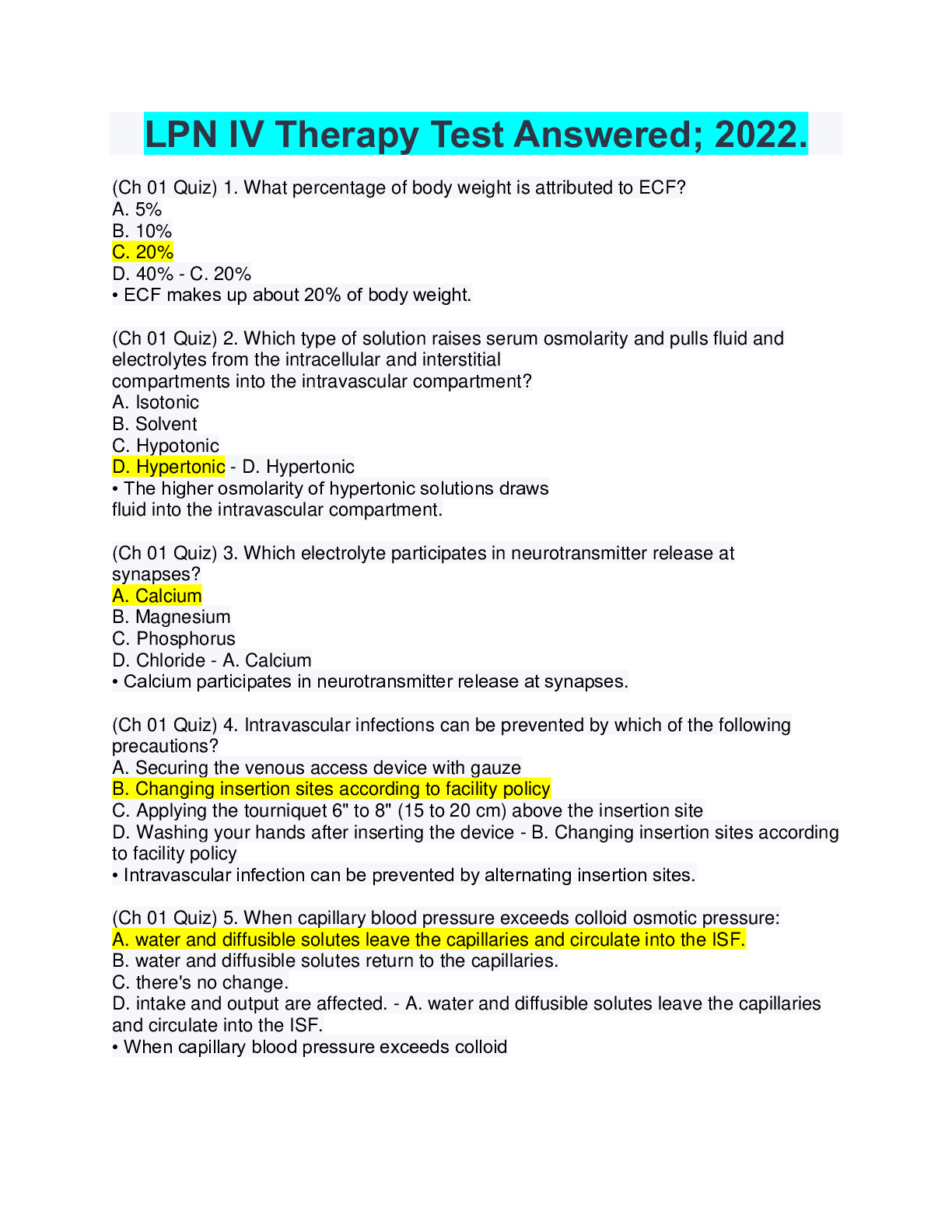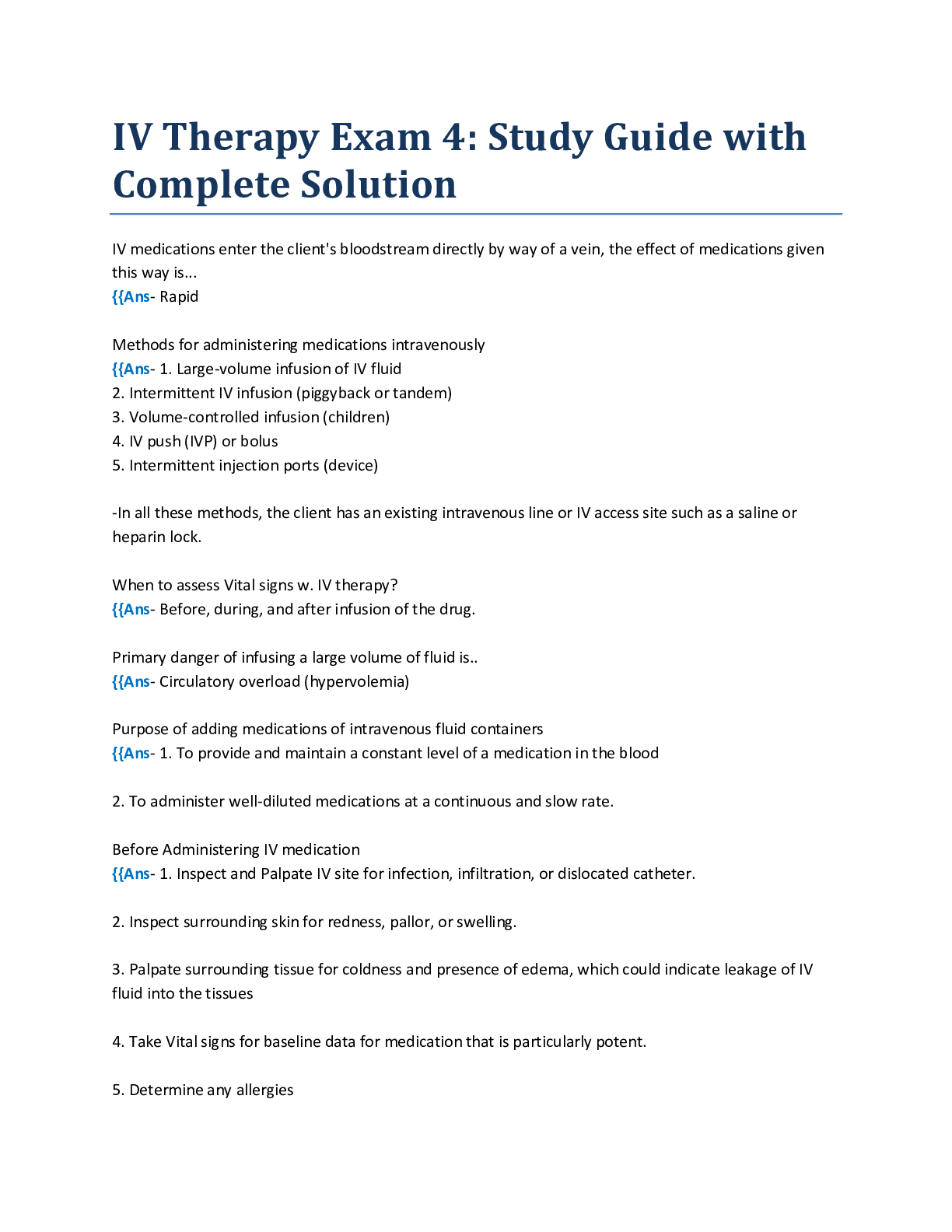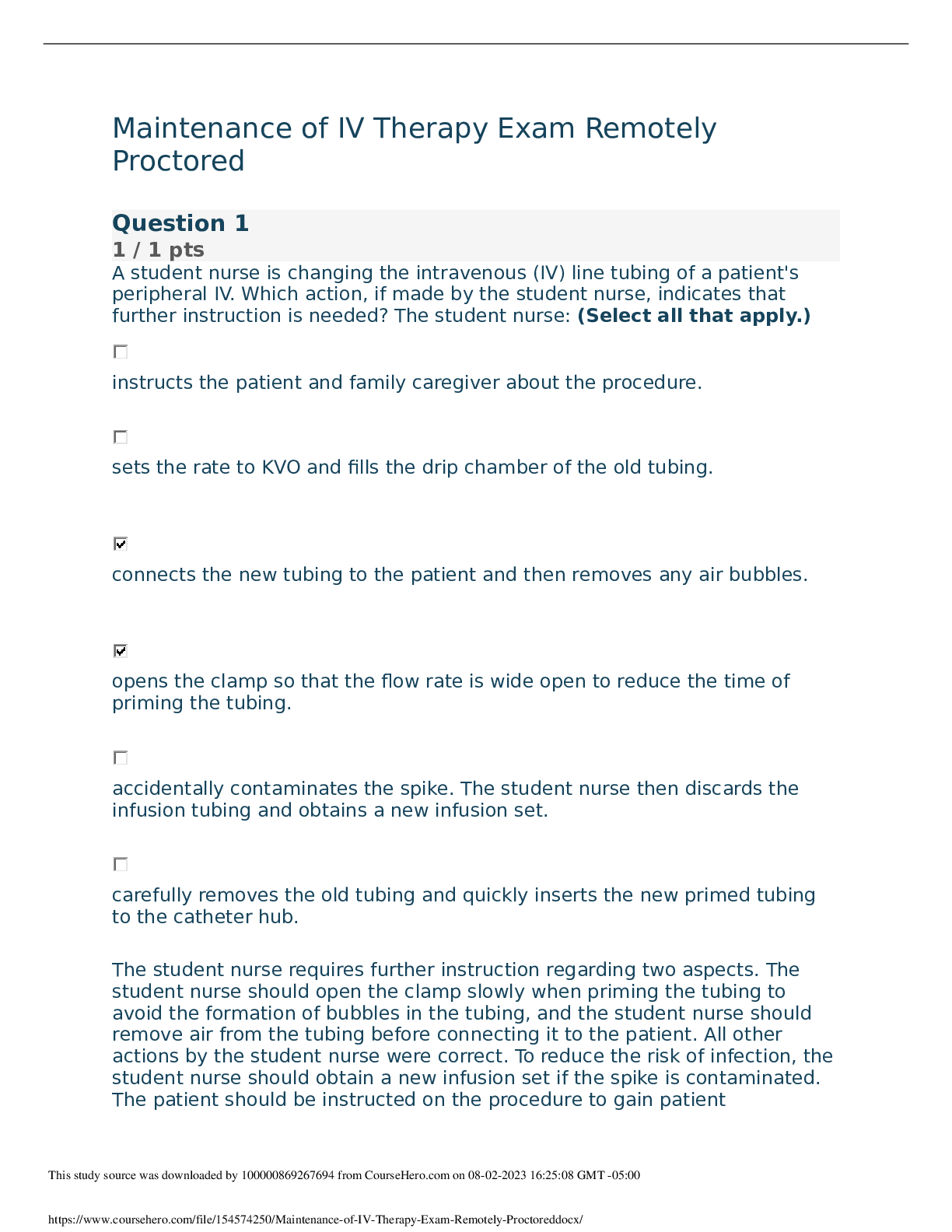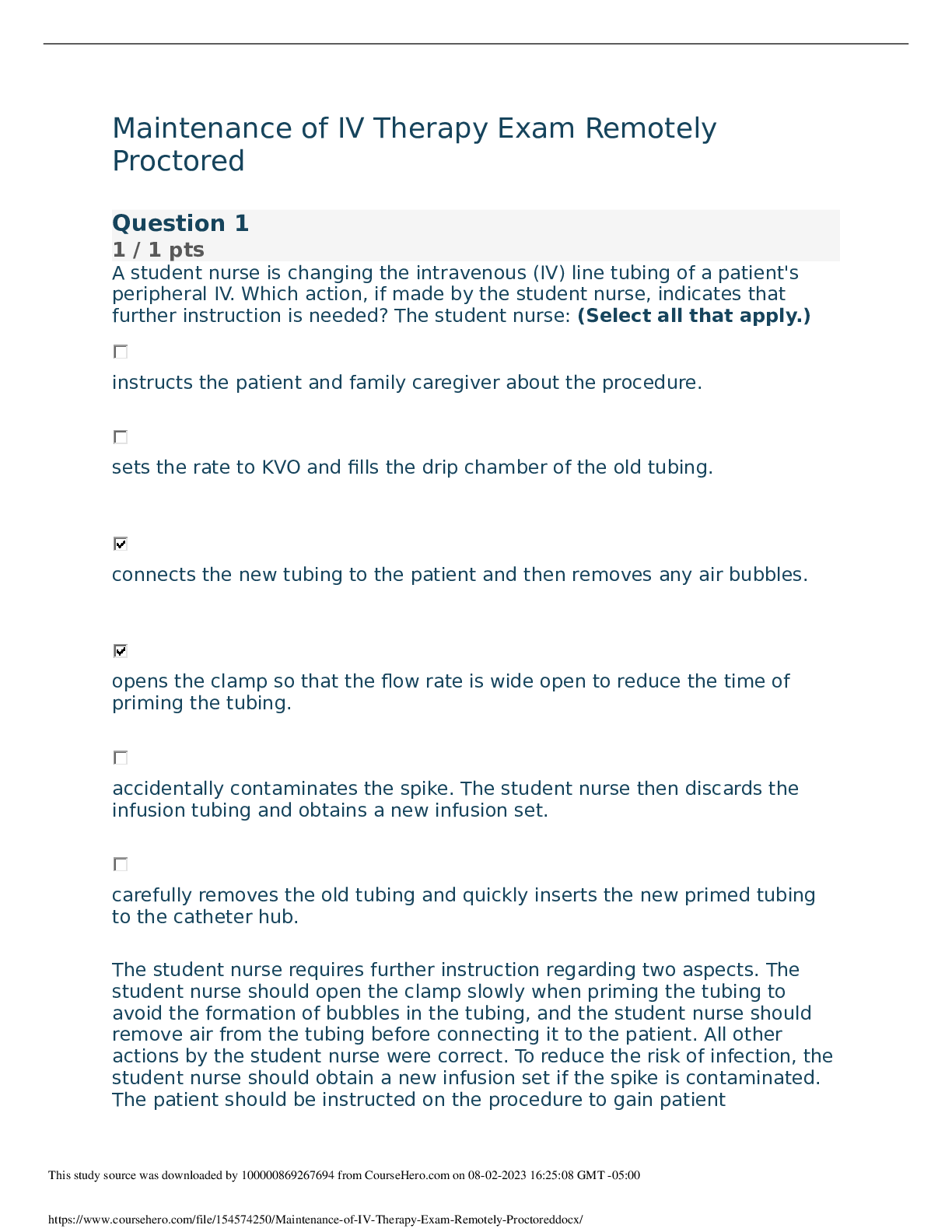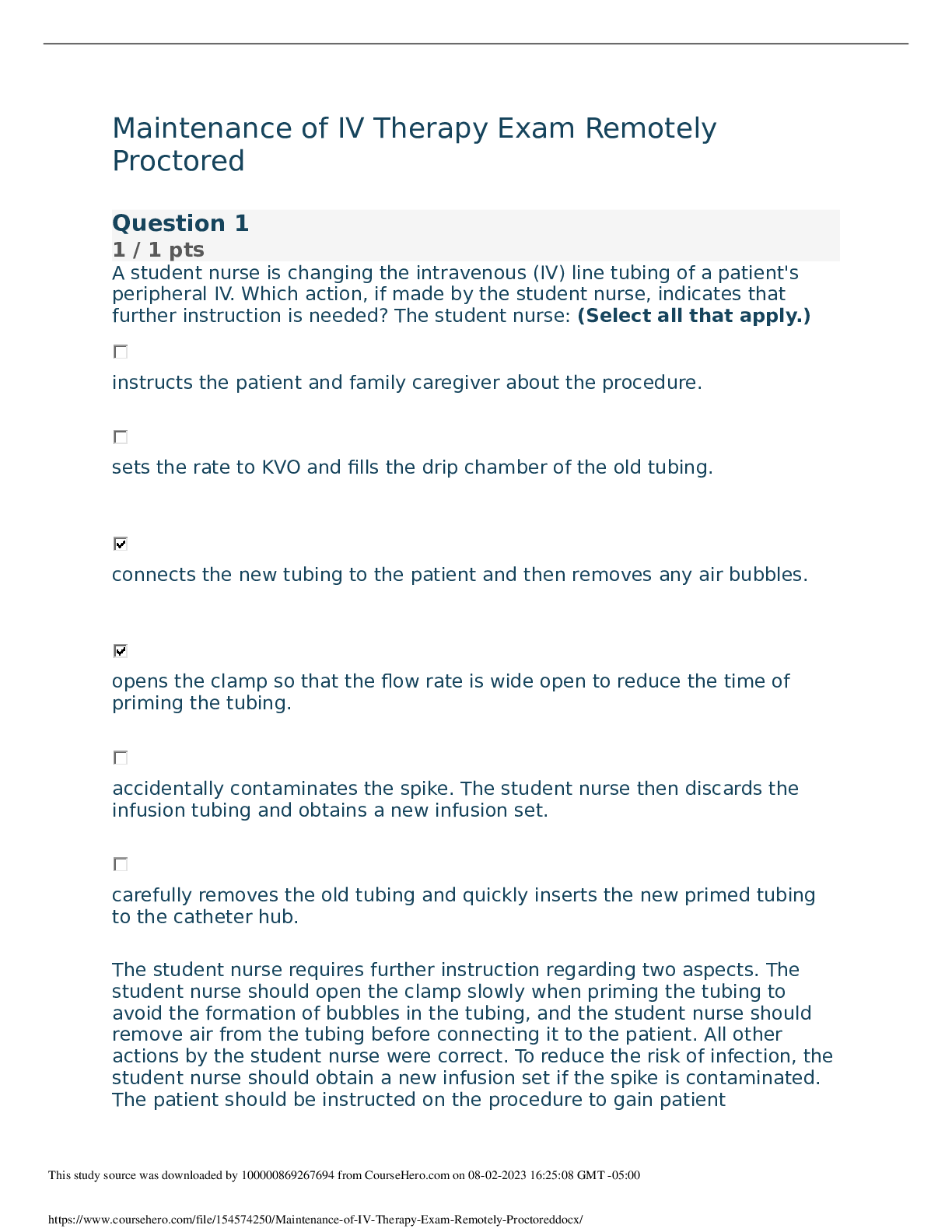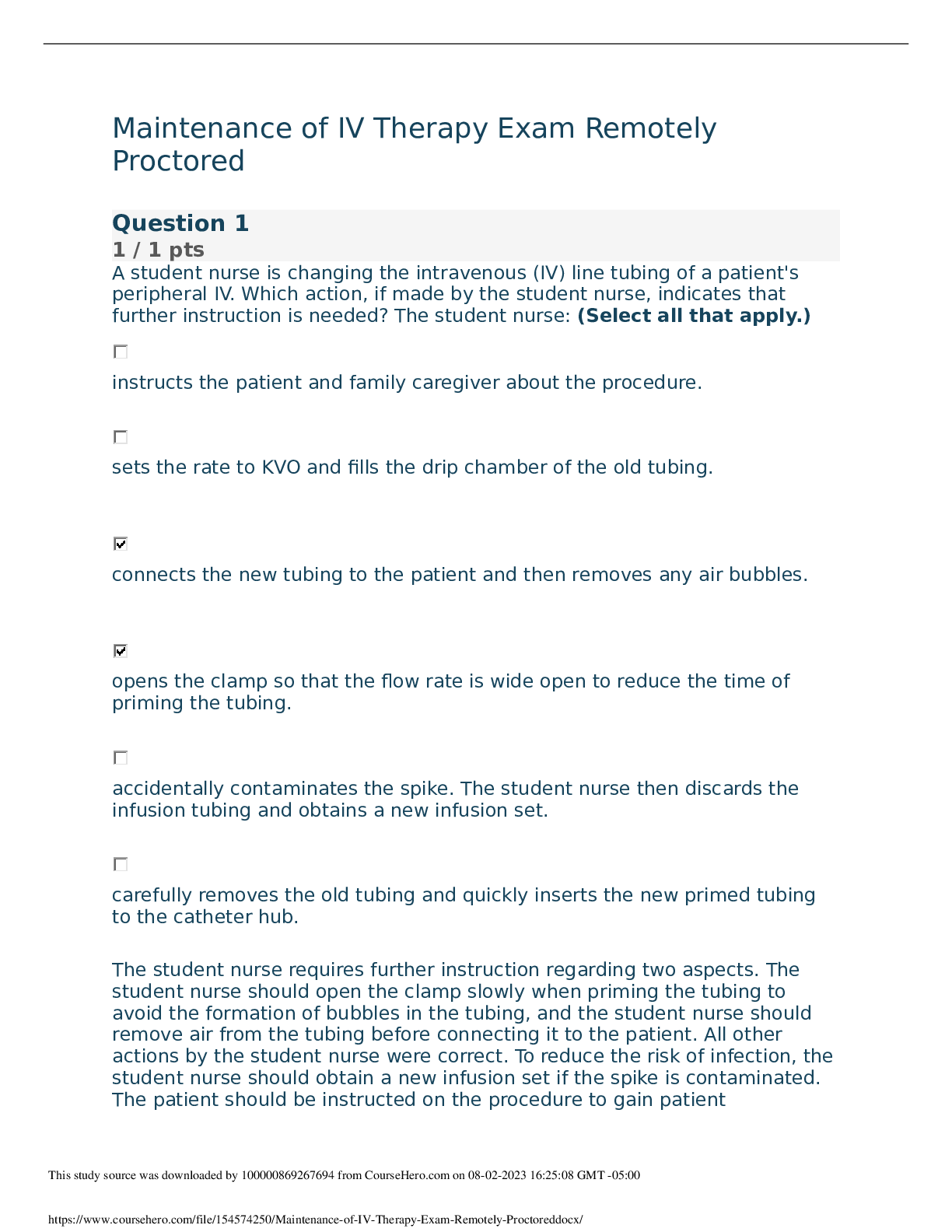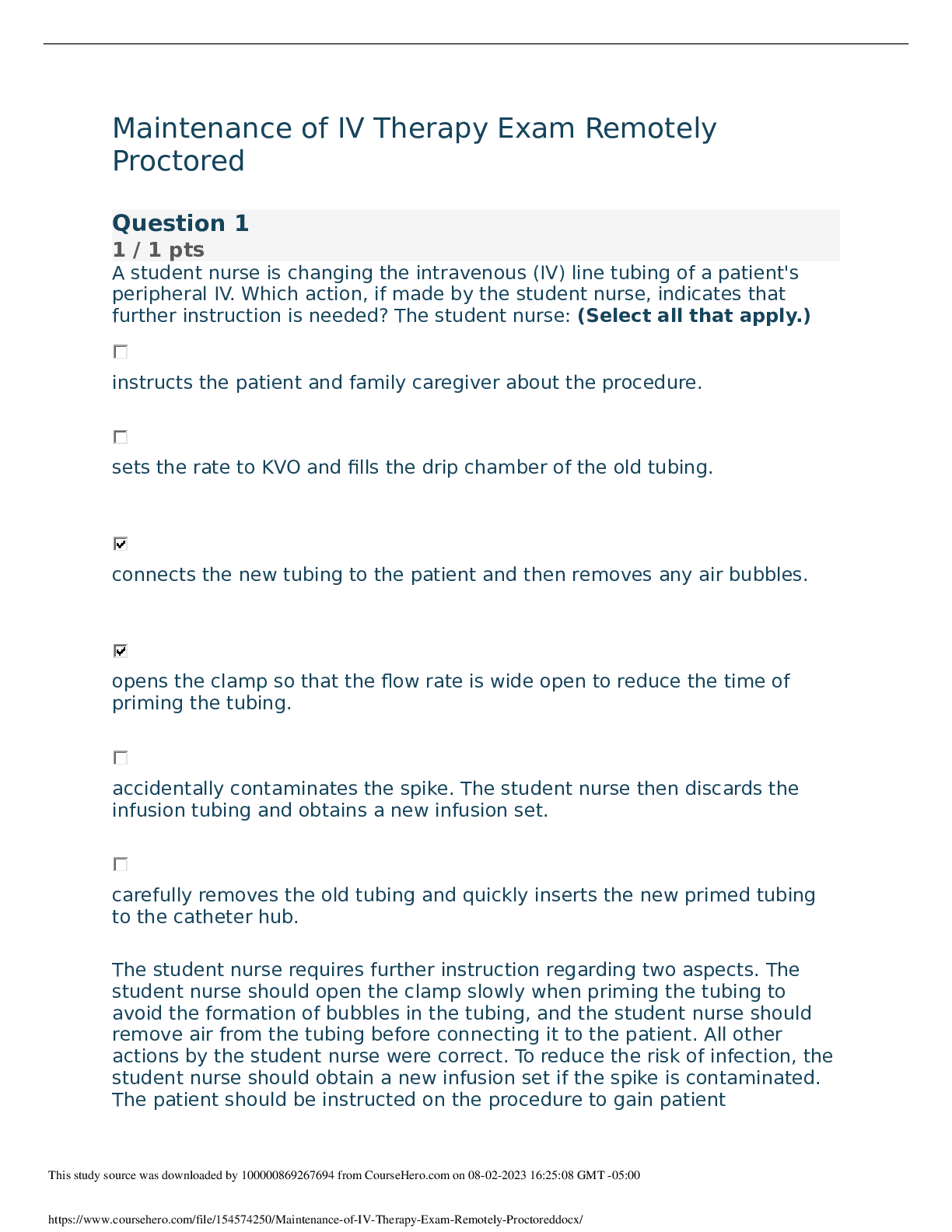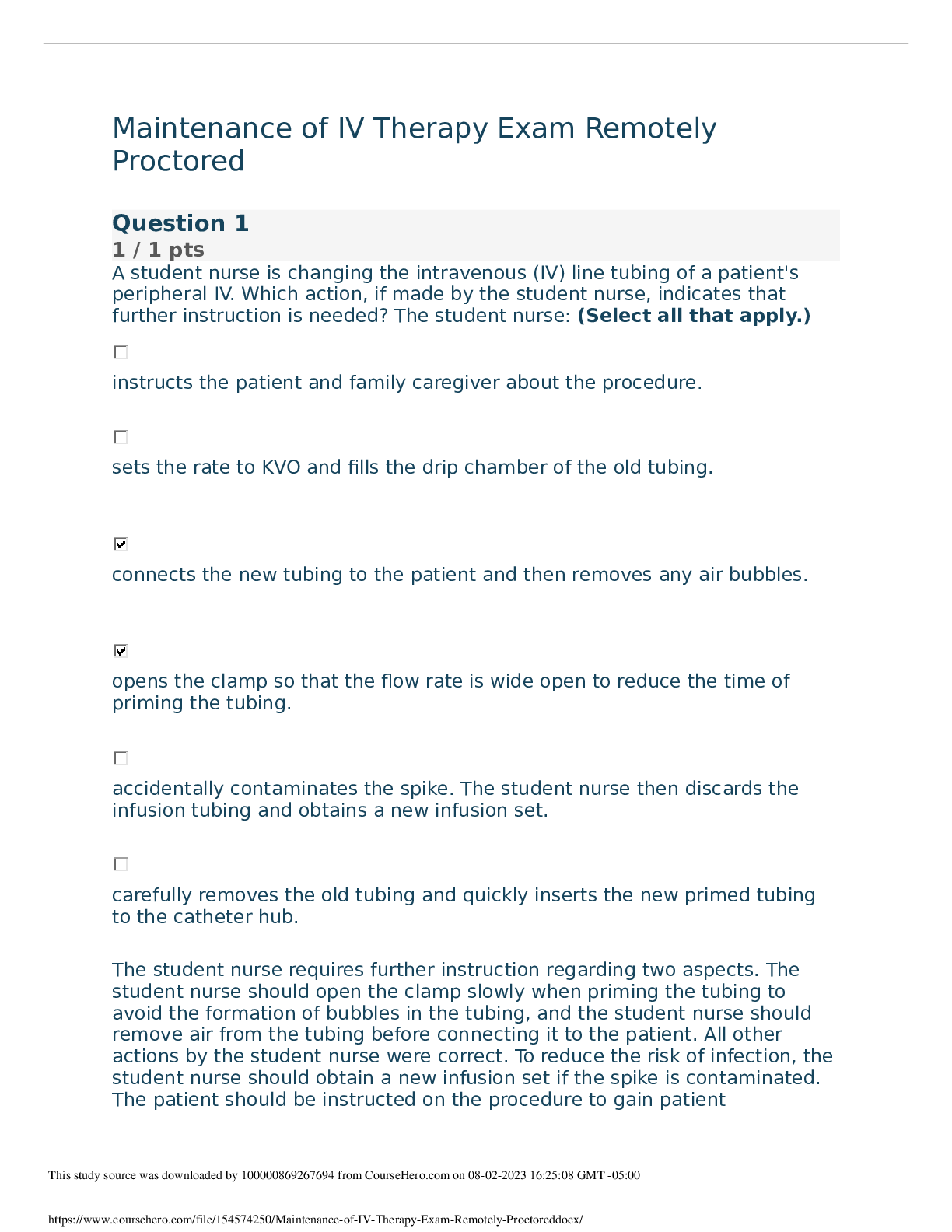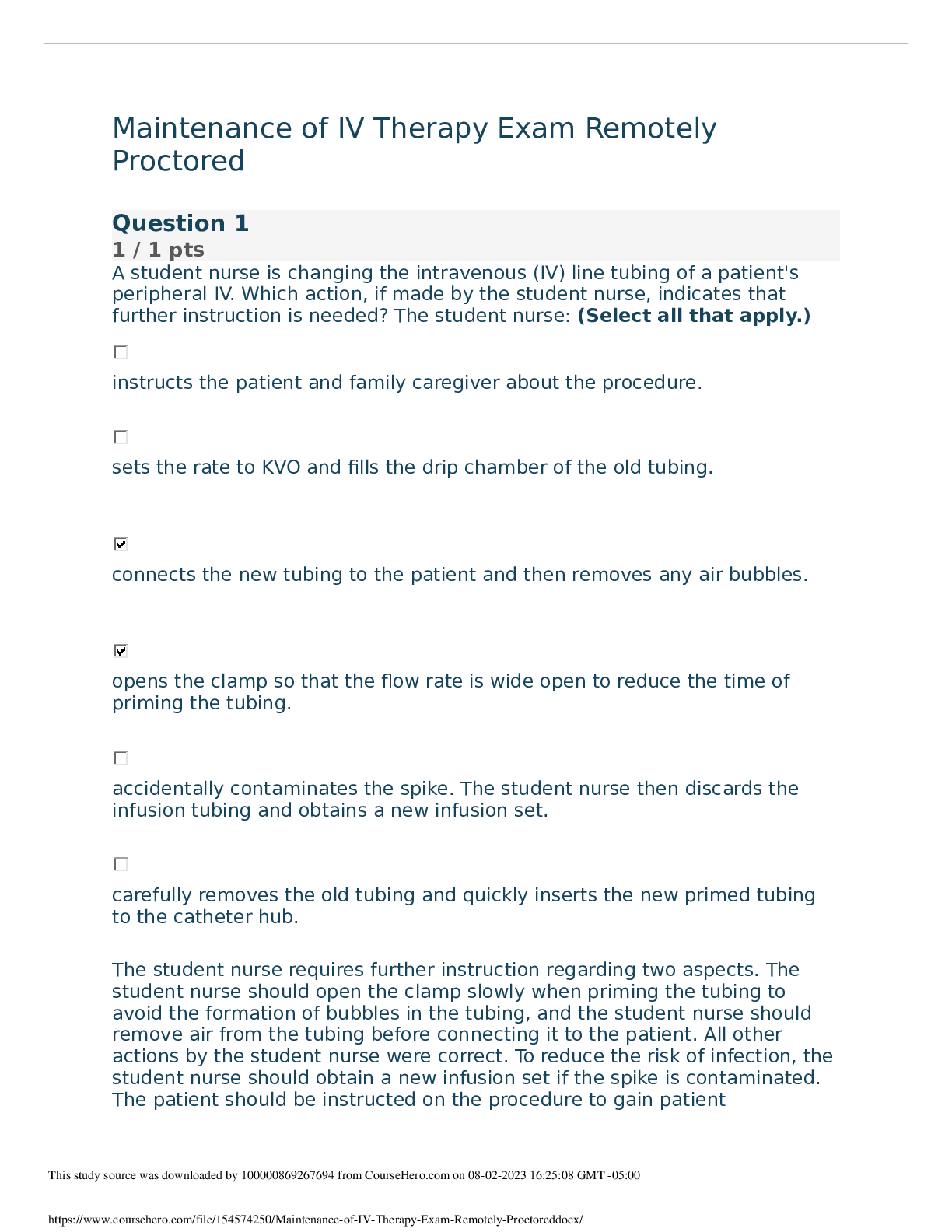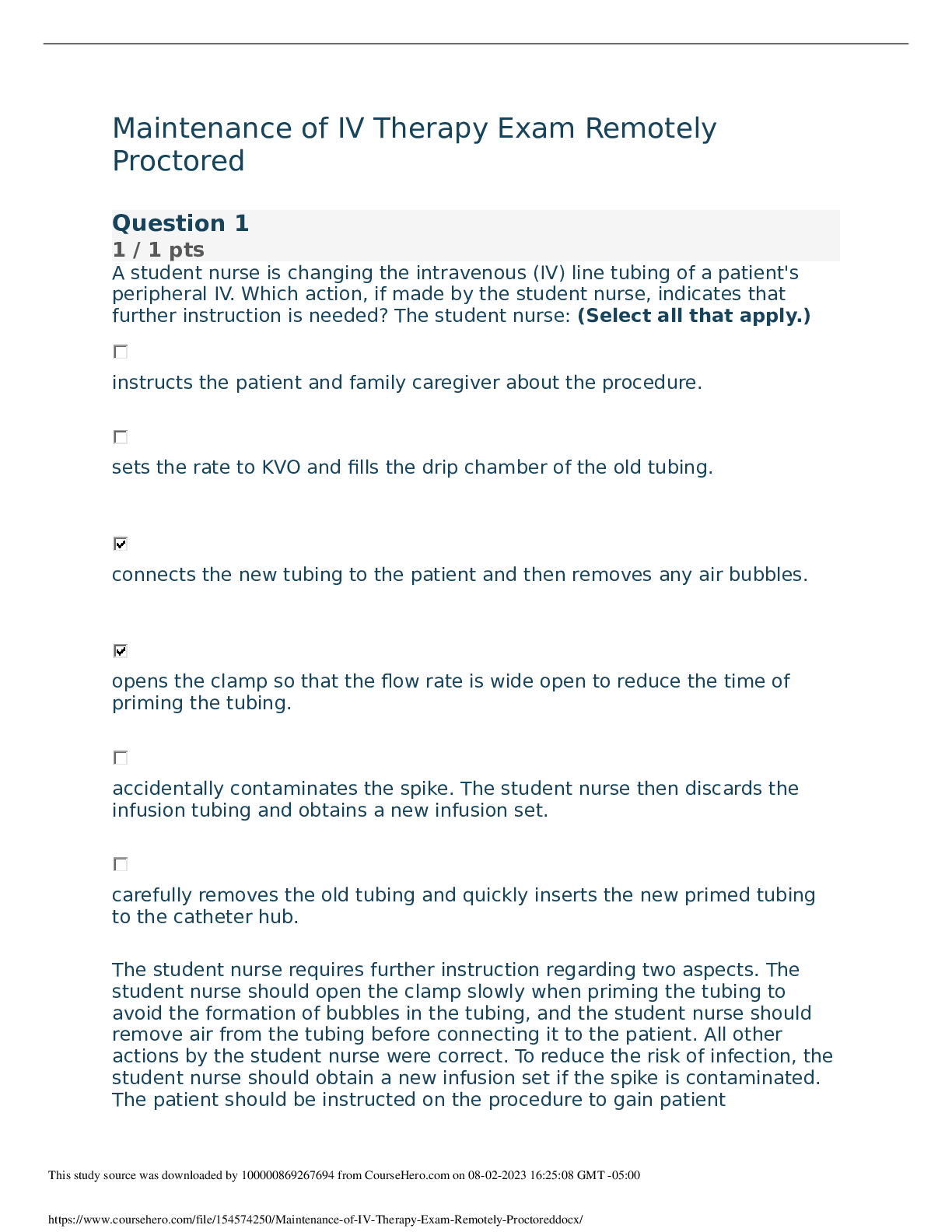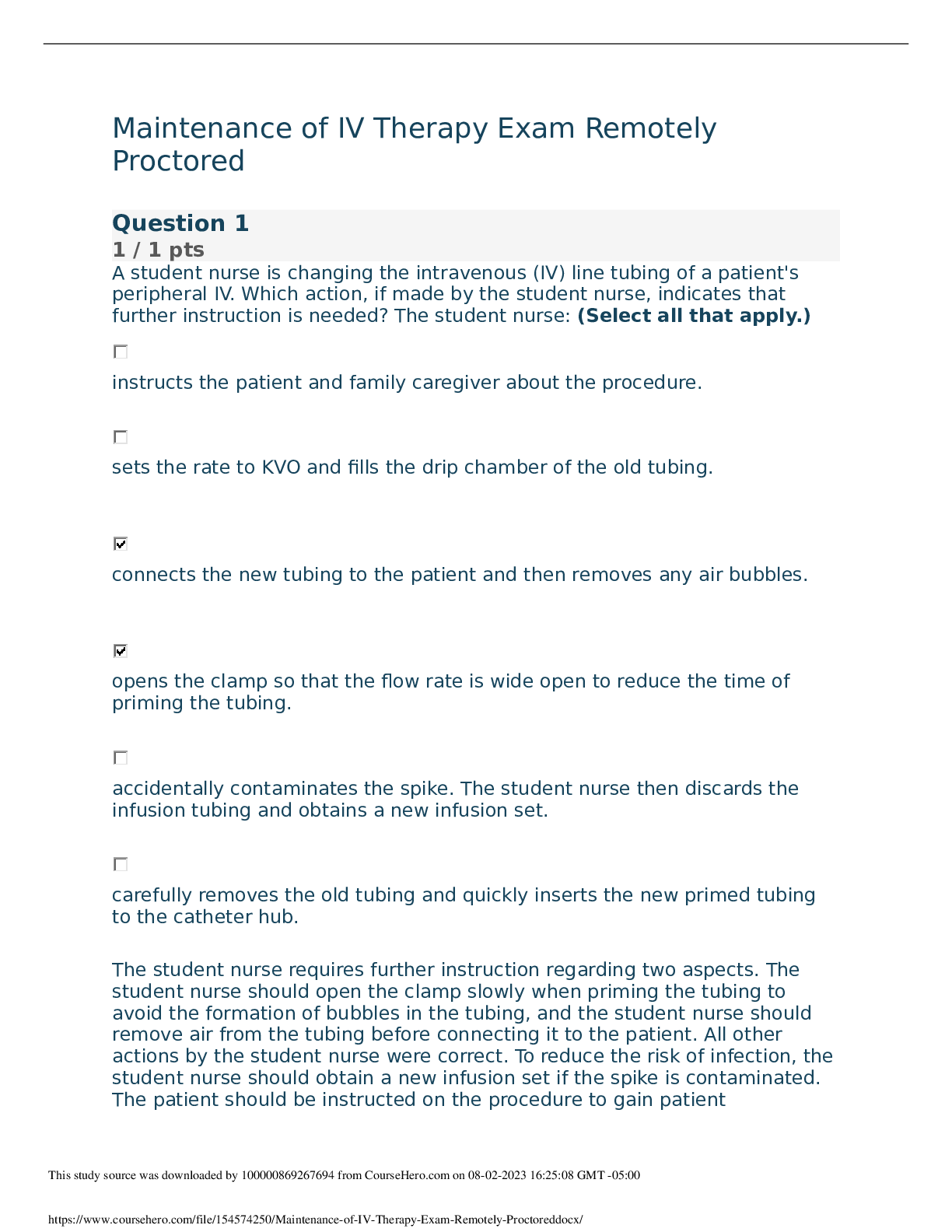*NURSING > EXAM > LPN IV Therapy Exam 2023 / IV Therapy Training Course; LPN IV Therapy Exam 2023. (All)
LPN IV Therapy Exam 2023 / IV Therapy Training Course; LPN IV Therapy Exam 2023.
Document Content and Description Below
LPN IV Therapy Exam 2023 / IV Therapy Training Course; LPN IV Therapy Exam 2023.-(Ch 01 Quiz) 1. What percentage of body weight is attributed to ECF? A. 5% B. 10% C. 20% D. 40% - C. 20% • ECF m... akes up about 20% of body weight. (Ch 01 Quiz) 2. Which type of solution raises serum osmolarity and pulls fluid and electrolytes from the intracellular and interstitial compartments into the intravascular compartment? A. Isotonic B. Solvent C. Hypotonic D. Hypertonic - D. Hypertonic • The higher osmolarity of hypertonic solutions draws fluid into the intravascular compartment. (Ch 01 Quiz) 3. Which electrolyte participates in neurotransmitter release at synapses? A. Calcium B. Magnesium C. Phosphorus D. Chloride - A. Calcium • Calcium participates in neurotransmitter release at synapses. (Ch 01 Quiz) 4. Intravascular infections can be prevented by which of the following precautions? A. Securing the venous access device with gauze B. Changing insertion sites according to facility policy C. Applying the tourniquet 6" to 8" (15 to 20 cm) above the insertion site D. Washing your hands after inserting the device - B. Changing insertion sites according to facility policy • Intravascular infection can be prevented by alternating insertion sites. (Ch 01 Quiz) 5. When capillary blood pressure exceeds colloid osmotic pressure: A. water and diffusible solutes leave the capillaries and circulate into the ISF. B. water and diffusible solutes return to the capillaries. C. there's no change. D. intake and output are affected. - A. water and diffusible solutes leave the capillaries and circulate into the ISF. • When capillary blood pressure exceeds colloid osmotic pressure, water and diffusible solutes leave the capillaries and circulate into the ISF. When capillary blood pressure falls below colloid osmotic pressure, water and diffusible solutes return to the capillaries. (Ch 04 Quiz) 1. I.V. medication may be indicated when: A. the patient needs a slower therapeutic effect. B. the medication can't be absorbed by the GI tract. C. the medication given orally is stable in gastric juices. D. the medication isn't irritating to muscle tissues. - B. the medication can't be absorbed by the GI tract. • I.V. medication has a rapid effect and may be indicated if the medication can't be absorbed by the GI tract, is unstable in gastric juices, or causes pain or tissue damage when given I.M. or subQ. (Ch 04 Quiz) 2. What's the preferred route of medication in e [Show More]
Last updated: 8 months ago
Preview 1 out of 38 pages
Instant download
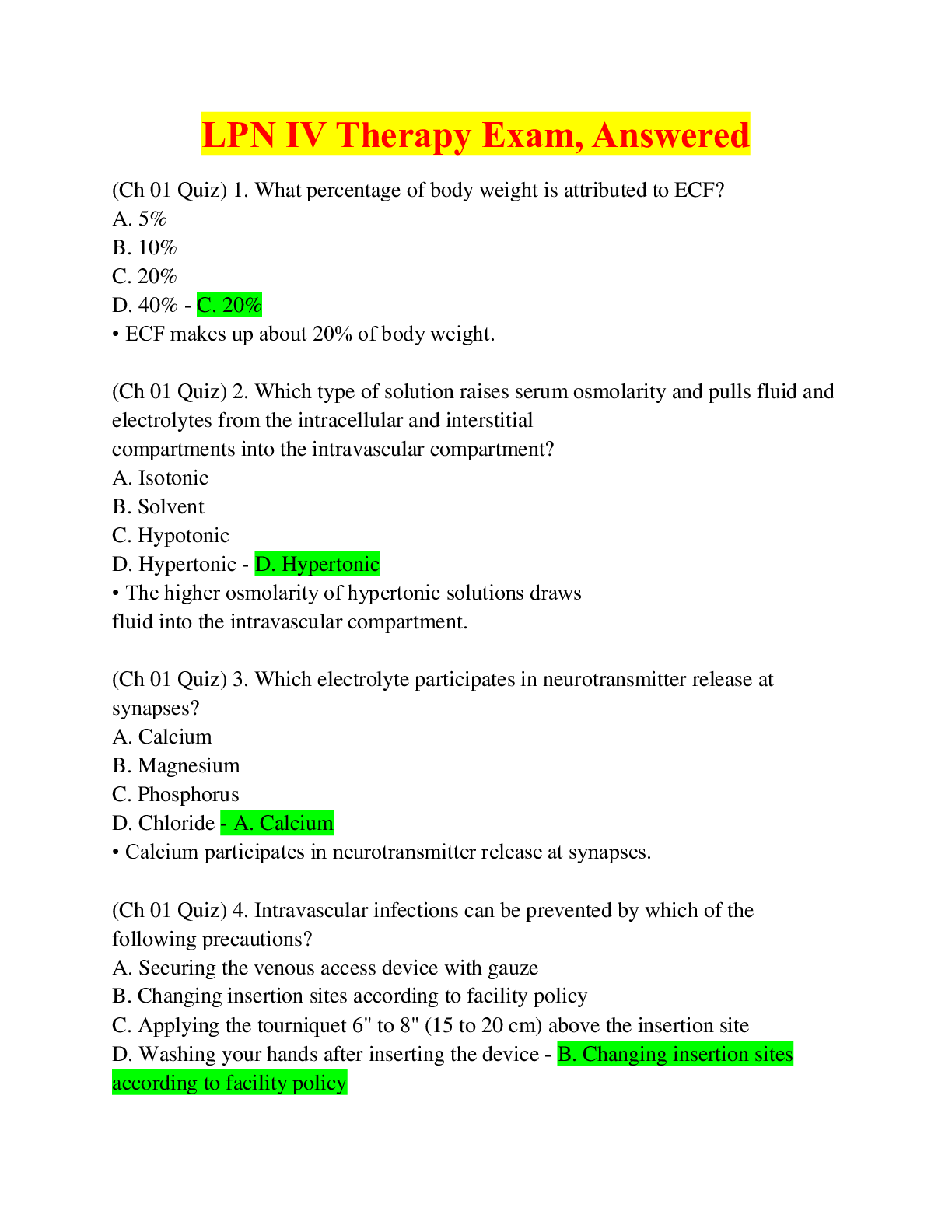
Buy this document to get the full access instantly
Instant Download Access after purchase
Add to cartInstant download
Reviews( 0 )
Document information
Connected school, study & course
About the document
Uploaded On
Sep 27, 2023
Number of pages
38
Written in
Additional information
This document has been written for:
Uploaded
Sep 27, 2023
Downloads
0
Views
64


